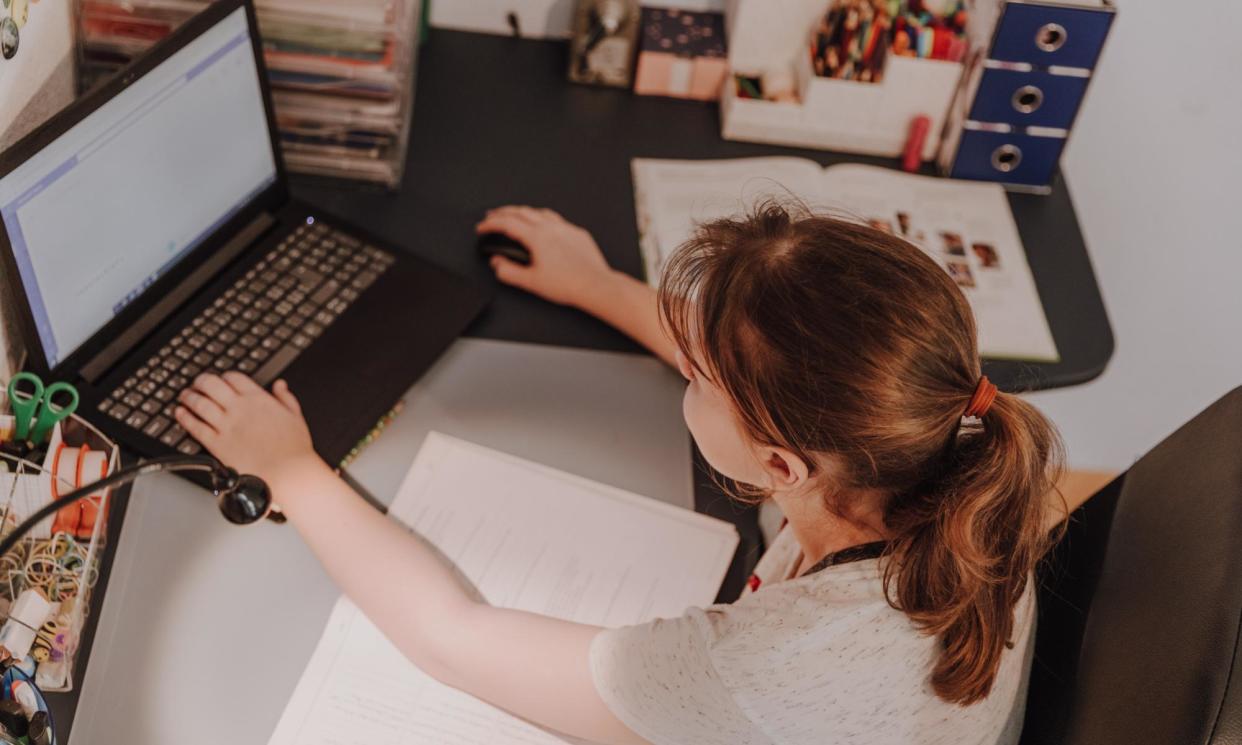How studying for the International Baccalaureate online has been life changing for one student

Like thousands of young people each year, Rhiannon Clark, 17, decided to enrol on a college course after finishing her GCSEs. She chose animal care as it was a topic close to her heart, but soon came to regret her decision. Interested in both sciences and humanities, Clark says she felt bored and unchallenged by her new studies. She missed her days of being home schooled when she’d studied all manner of subjects.
On top of this, Clark found college “incredibly physically demanding” and “exhausting” due to her Ehlers-Danlos syndrome – a rare, inherited connective tissue disorder. Experiencing chronic pain, fatigue and dislocated joints as a result of her disability, Clark needed specialist transport to travel to college, a powered wheelchair to get around campus and a scribe to help her in class. But she felt the support she needed wasn’t always there, which made her studies more difficult. “As a result, my health declined, and I felt that college wasn’t worth the effort.”
Clark quit college and, in search of an alternative, came across the International Baccalaureate (IB) diploma programme, an academically rigorous two-year qualification. The internationally recognised course encourages students, aged between 16 and 19, to improve their independent learning, critical thinking, adaptability, global awareness and collaborative skills. Students undertake six academic subjects, an extended essay, a theory of knowledge course and an additional creative, health improvement or voluntary activity, which can include things such as painting and yoga.
The breadth and variety of the course, and the possibility of learning with motivated, like-minded youngsters appealed to Clark. She is currently studying for the IB diploma at King’s InterHigh, an independent UK-based online school, with a global community of students aged seven to 19.
The school launched the world’s first fully online IB course in 2022. Teachers promote active learning through polls, quizzes and virtual simulations. Students can speak up in class on microphones and webcams, or via the chatbox, and can split up into “break-out” rooms for small group research and discussions.
Thanks to remote learning, Clark finds her studies less physically demanding than when she was at college. And because all classes are recorded, she can easily catch up on lessons missed due to hospital appointments. She enjoys the discussion element of the course and “collaborating with students from all across the world”.
Up early, Clark starts her day with a cuppa before attending an online assembly or tutorial. Then it’s time for lessons, which can vary from three to six a day, each lasting 40 minutes (she’s studying biology, maths and psychology at higher level, and history, English and Spanish at lower level). They might be delivered as standard lectures, collaborative sessions between students and virtual reality lessons, where students – using VR headsets – might conduct practical scientific experiments or travel back in time to meet historical figures. Her studies usually finish by 4pm.
Describing the course as “incredibly rewarding”, Clark enjoys the range of subjects, meeting students from all over the world and being taught by “supportive and approachable” teachers. But while online learning better suits her needs, she says the course’s early start and packed timetable can sometimes be challenging. “It’s a full day, so I really have to be on top of getting medical treatments done and making sure I eat breakfast and lunch.”
After completing the IB, Clark plans to take a gap year before applying to university. She’s considering which degree to opt for, deciding between biomedical engineering, psychology, linguistics and politics. “Taking the IB has really increased the courses I’ve been able to consider and I’m excited for what the future holds,” she says.
The school’s IB diploma programme coordinator, Emily Fishman, says that both A-levels and the IB are “great options” for students. Asked how they differ, she explains that the IB teaches students not only academic subjects but also core skills such as critical thinking, empathy and self reflection. Due to the programme’s international scope, it helps students to better understand the world around them and develop “global perspectives”, she says.
“The breadth and depth of subjects is critical for the programme, with all students completing three subjects at higher level and three subjects at standard level,” she says. “Students therefore end up developing academic skills needed for future study, as well as learning social and caring skills.”
Fishman says the course is highly respected by universities and equips students for “a specific course like medicine or law”. But it’s also suitable for people who are unsure what they want to do in life and allows them to keep their options open, she adds.
Over the past two years, Fishman and the King’s InterHigh team have taught two student cohorts on the remote IB. And they are currently recruiting for the third cohort, which will commence its studies in September.
Reflecting on the success of the course, she says: “One of the highlights of being part of the programme is working with students from all different backgrounds. Teaching a class with students from every continent of the world has been an amazing experience.”
To find out more about the International Baccalaureate diploma programme, visit kingsinterhigh.co.uk/ib-online/

 Yahoo News
Yahoo News 
